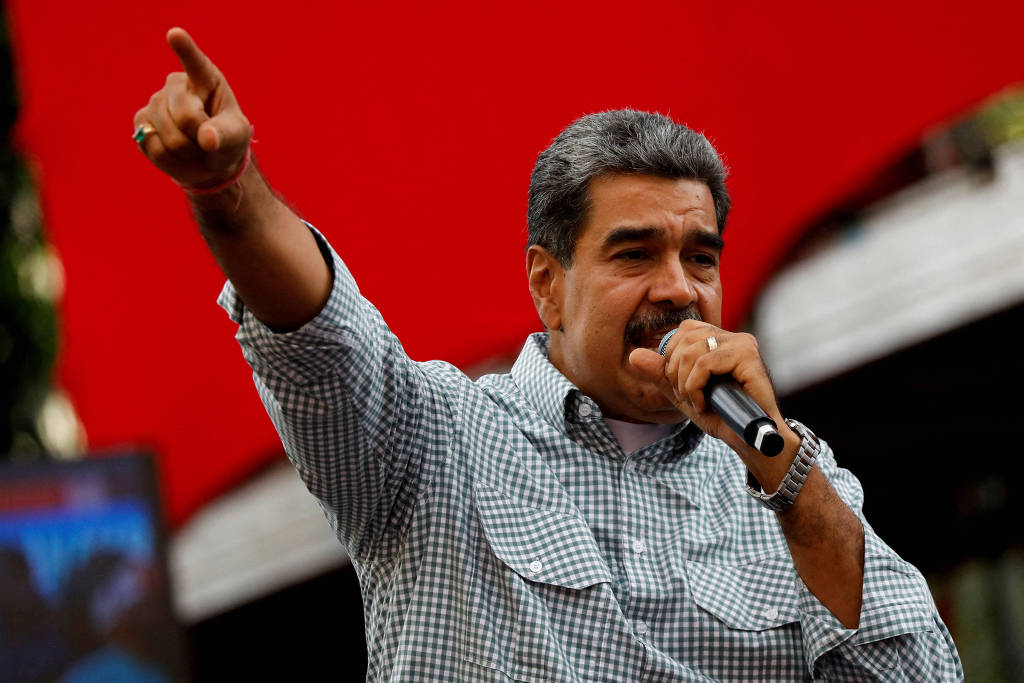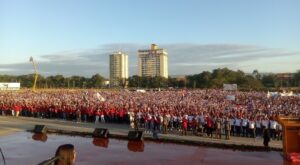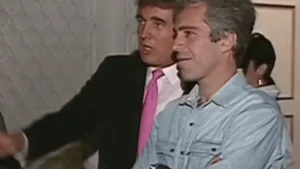
Published 07/01/2025 12:24 | Edited 07/01/2025 16:25
The inauguration of the re-elected president of Venezuela, Nicolás Maduro, this Friday (10), promises to be the starting point of a politically intense year in Latin America. In addition to the tensions in Caracas, decisive elections will take place in at least five other countries in the region, consolidating or challenging the balance of forces between left-wing governments and the rise of far-right and neoliberal leaders.
The Latin American scenario will also be influenced by Donald Trump’s return to the presidency of the United States, which could have direct effects on migration, tariffs and trade relations.
Maduro’s inauguration will be closely watched across the continent and other countries around the world. Although the electoral process has been recognized by the Venezuelan Electoral Court, the coup opposition led by María Corina Machado and Edmundo González Urrutia is trying to undermine the result.
Previously exiled in Spain, González has already announced that he will return to the country to proclaim himself president, echoing previous destabilization attempts seen in Venezuela. The announcement was made in Buenos Aires, last Saturday (4), during a visit to the leader of Argentina’s extreme right, President Javier Milei.
Ecuador
The movement in Venezuela occurs in a scenario where other Latin American countries will also face decisive moments in their democracies. In Ecuador, elections will take place with the first round on February 9th and, if necessary, the second round on April 13th. The dispute should measure the strength of Luisa González, favorite in the polls, against current president Daniel Noboa, who has the support of the media and the state apparatus.
Ecuador is experiencing a serious public security crisis. Considered one of the safest countries in Latin America in 2017, the Andean country has seen its homicide rate rise 700% since the rise of the right.
The recent escalation of violence is directly linked to the reckless tension of the Noboa government, which, even without the necessary budget, promised to dismantle criminal groups. The crisis also reflects the dismantling of public policies by the previous governments, of Lenin Moreno (2017-2021) and Guillermo Lasso (2021-2023).
In Ecuador, the political fight will be between Luisa González, an ally of Rafael Correa, and the current president Noboa, a billionaire who has emerged as a new Nayib Bukele.
Bolivia
Bolivians will also go to the polls to elect the President of the Republic, as well as their representatives in the Legislative Branch. The vote was scheduled for August 17th. If there is a second round, voting will take place on October 19th.
The political scenario continues to be convulsed by a dispute between the country’s current president, Luis Arce, and former president Evo Morales, who are vying for control of the ruling party MAS [Movimento ao Socialismo].
Chile
Chile, in turn, will have presidential elections on November 16. If no candidate wins the first time, a second round will be held on December 14th.
Current center-left president Gabriel Boric cannot run for re-election and it has not yet been decided who he will support. Meanwhile, former president Michele Bachelet’s name has been mentioned in debates for the 2025 presidential election.
The second-place finisher in the 2021 Chilean elections, far-right politician José Antonio Kast, defender of the Pinochet dictatorship, is seen as a strong candidate for the presidential seat.
Argentina
In Argentina, President Javier Milei’s political and electoral power will be put to the test on October 26, when the brothers will define half of the seats in the Chamber and a third of the seats in the Senate.
The legislative elections will be a kind of referendum on the ultraliberal president’s management in the face of the serious economic crisis that the country is facing.
The vote has symbolic contours, since the seats to be renewed in Congress are insufficient for Milei to achieve a majority.
Honduras
In Honduras, the election is scheduled for November 30th. Before that, next March, Honduran parties will hold primaries to choose candidates. The current president of Honduras, Xiomara Castro, from the left-wing Livre party, hopes to appoint her Defense Minister, Rixi Moncada, as her successor.
Among the names of the Honduran opposition in the dispute are Ana García, former first lady of Juan Orlando Hernández, president extradited to the United States and sentenced – in July 2024 – for drug trafficking to 45 years in prison.
Trump inauguration
Another element that promises to shape the year is Donald Trump’s inauguration in the United States, scheduled for January 20th. Trump has already signaled that he will intensify anti-immigration policies and that he may impose higher tariffs on products from Mexico and Canada, which would have side effects on Latin American economies.
Experts warn that the measures could result in greater pressure on local governments and increase trade tensions in the region.
In addition to the political context, the Latin American economy begins the year with significant challenges. The International Monetary Fund (IMF) projects growth of 2.5% for the region, but the persistence of high interest rates in countries such as Brazil and Mexico could slow development. Inflation, although falling, remains a significant concern for local populations.
Another highlight in 2025 will be the role of Mercosur in regional integration and international trade. Elections in Bolivia and Chile could redefine the bloc’s internal dynamics, while Brazil, under the leadership of President Lula, will seek to strengthen Mercosur’s role as a mediator of regional crises and promoter of economic development. The ratification of trade agreements and the expansion of the bloc will be debated throughout the year.
Source: vermelho.org.br

